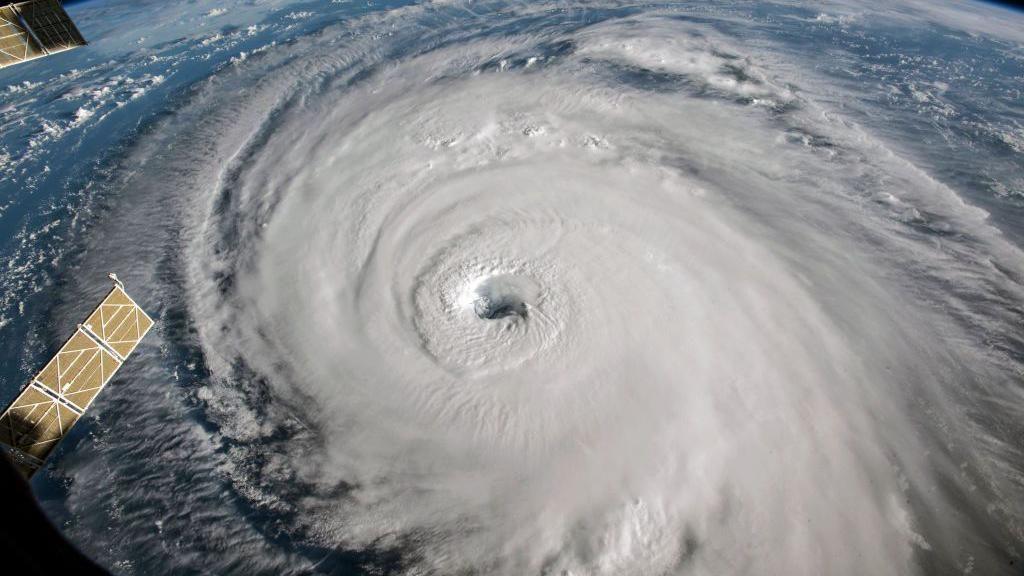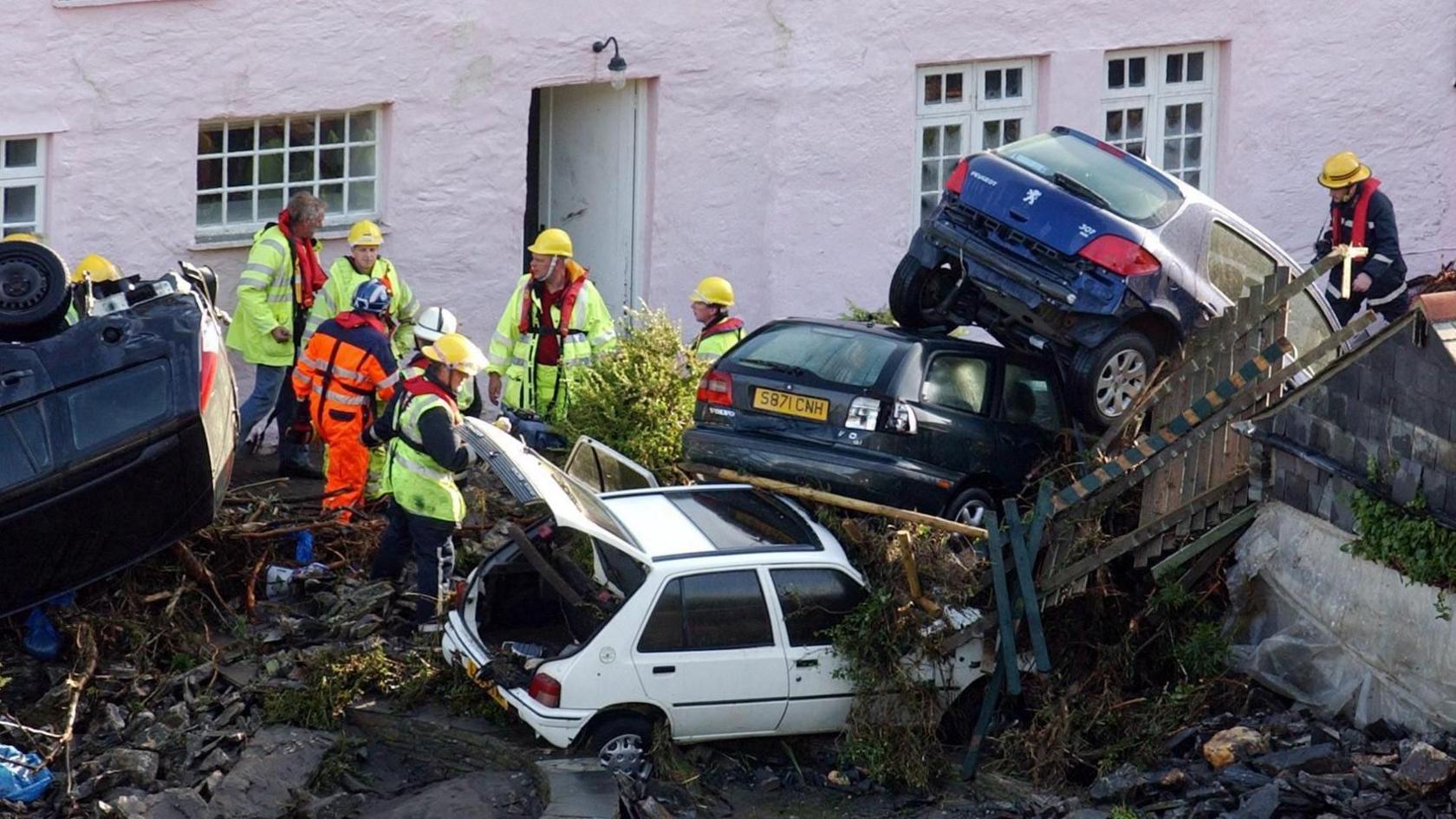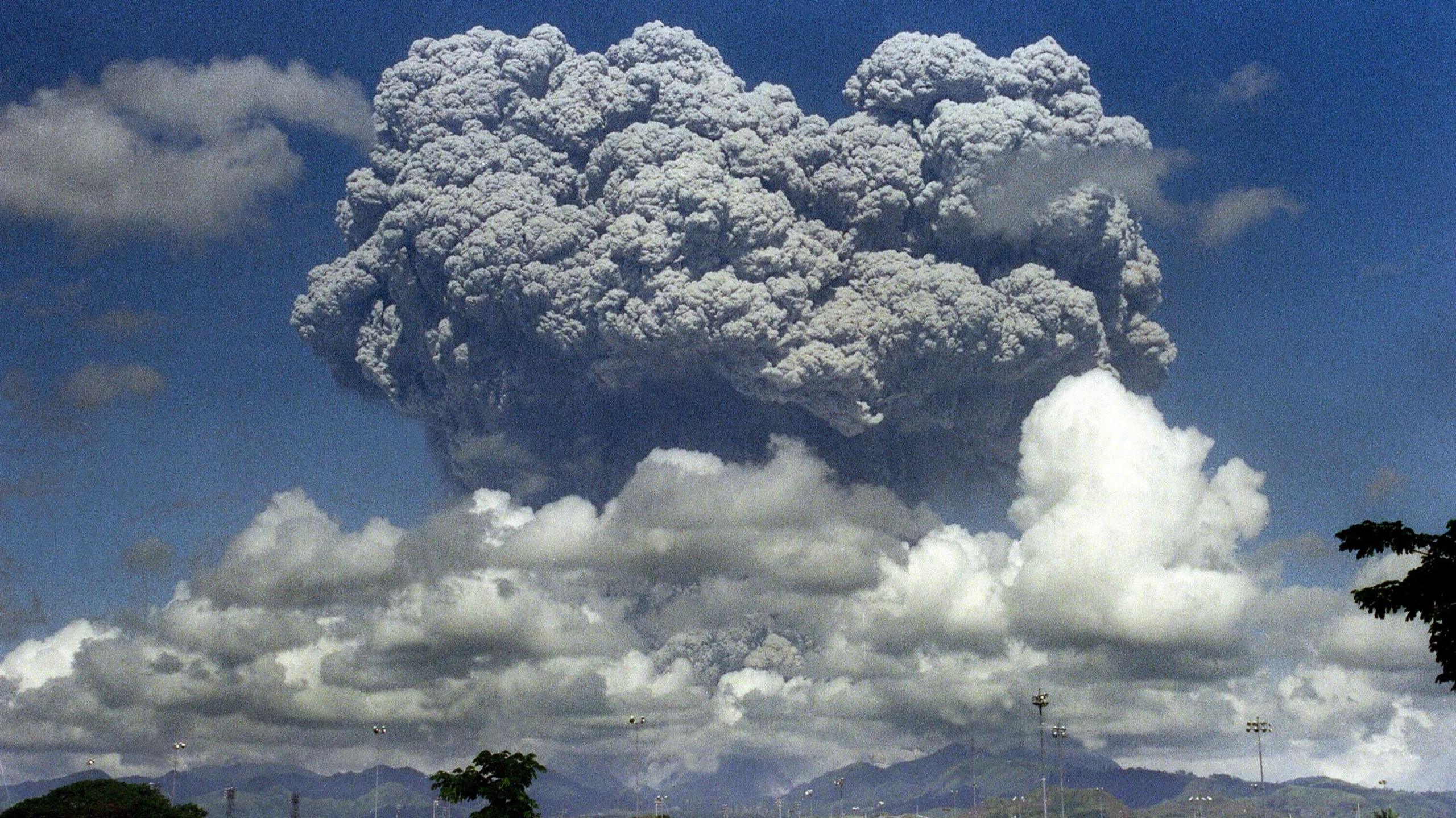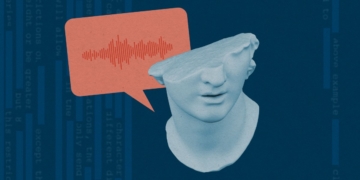 NASA
NASA-
20 June 2025
A wave of machine-learning weather models have been unleashed by some of the very biggest businesses on the planet.
These challenge the orthodoxy of traditional physics-based computer forecasts that have been incrementally developed and improved over many decades.
But are the machine learning models any good?
The weather is a national obsession for us Brits, and it is no wonder given the huge changes that are seen and felt from one day to the next.
Accurate weather forecasts are not just vital for planning our daily lives but knowing about upcoming severe weather can help us to change our behaviour, save lives and mitigate damage to property.
It is impossible to assess the full economic value of weather forecasts globally, but the numbers are huge.
According to NOAA (National Oceanic and Atmospheric Administration), in the US alone – and just taking into account the biggest weather disasters that caused over $1bn (£740m) in damage – the fallout from severe weather in 2024 amounted to $182bn, with 568 fatalities.
Since 1980, this damage figure stands at nearly $3tn.
Meanwhile, in the UK, there were 1,311 excess deaths caused by heatwaves in 2024.
A study from consultants, London Economics, concluded that the Met Office would bring £56bn of benefits to the UK economy over the course of a decade through providing meteorological services.
Multiply these kinds of numbers across the whole world, with a growing population exposed to increasingly extreme weather fuelled by climate change, and weather is big business.
 EPA
EPAThe biggest computers on the planet
Traditional weather forecasts are produced on some of the biggest supercomputers on the planet; the Met Office super computing contract is worth £1.2bn.
That huge sum of money buys you a machine that can perform 60 quadrillion (60,000,000,000,000,000) calculations per second, running a model containing the understood physics, with over a million lines of code and using 215 billion weather observations.
Global weather models work by crunching the numbers in a grid of boxes right around the planet. The size or resolution of these boxes varies across different meteorological models, but range between about 10sq km to 28sq km (3.86sq miles to 10.81sq miles).
At this kind of resolution they cannot accurately predict showers, while mountain ranges are lower and smoother than in the real world.
The highest resolution model from the Met Office, the UKV (the model that runs BBC TV graphics for the first 48 hours) can predict showers with its incredible 1.5km (0.9 mile) resolution – but it takes so much computing time and power that this model is not able to forecast for the entire world; instead it concentrates on the UK and Europe.
Machine-learning weather models: are they any good?
Machine-learning weather models have only been around for a few years, showing promise as they develop rapidly.
Traditional models take hours to run on hugely expensive supercomputers, however this new breed of models can take less than a minute to run on a standard laptop. They don’t need to know all the ‘burdensome’ laws of physics, but are instead trained on 40 years of past data to make their predictions.
How do they perform?
Well let’s look at forecast verification data from ECMWF (European Centre for Medium Range weather Forecasting) for atmospheric pressure patterns in winter 2024/2025.
GraphCast (Google), AIFS (ECMWF) and Aurora (Microsoft) were more accurate than the traditional IFS (ECMWF) benchmark forecast, whereas FourCastNet (Nvidia) and Pangu-Weather (Huawei) trailed behind.
So some of the machine-learning models performed better, and some worse, but it depends on which variable you look at, and all of this could change quickly as the rate of progress accelerates.
Just like traditional models, AI models are less accurate the further ahead in the future they’re trying to predict – a consequence of the chaotic nature of the atmosphere. Looking 10 days ahead, none of the AI models (or traditional models) were able to offer forecasts considered to be of much use in terms of accuracy.
So is it time to walk away from physics-based weather models?
Not yet.
Machine-learning weather models are not only trained using data produced by traditional weather models, but they also use the start position of the atmosphere from traditional models as their input point. In other words, without those traditional models running, the machine-learning models wouldn’t work as well.
All machine-learning models can forecast large scale features like high and low pressure six days ahead very well, but they can underperform compared to traditional models at smaller-scales of 1000km or less.
This means that important features like troughs and ridges could be missed, which would make the difference between a dry day, or a day with heavy rain.
 PA Media
PA MediaThe majority of machine learning models have a resolution of 28sq km, which is the same scale as the data that they’ve trained on. This means small features like showers would most likely be missed, so they wouldn’t be able to forecast a Boscastle flood event many days ahead.
News headlines have claimed that these new models are better than traditional models at predicting hurricanes.
It may be true that some have been a little better at predicting the landfall of hurricanes ahead of traditional models, but at the same time they have been very poor at predicting the wind strength and therefore the likely damage the storm would bring.
This may be the result of the smoothing, or averaging effect of looking at lots of hurricanes in the 40 years of training data.
 Getty Images
Getty ImagesAI models may struggle to forecast effects from rare events that have not been seen often in the 40 years of training data. An example of this is the 1991 eruption of Mount Pinatubo that cooled the planet down by up to 0.5C for two years.
There are also questions about how well AI models will forecast in a warmer world as our planet continues to heat up as a result of climate change. The past climate that they’ve trained on will look quite different to our future climate, as greenhouse gases continue to accumulate in the atmosphere.
So, where will we be in five years time?
“I think we’ll have traditional models running alongside AI models so that we are drawing on their combined strengths to enable hyper-localised accurate forecasts, delivered fast, when you need them,” says Professor Kirstine Dale, chief AI officer at the Met Office.
Machine-learning models haven’t been around for very long, but with their speed, computer efficiency and rapid rate of development, they show great potential.













